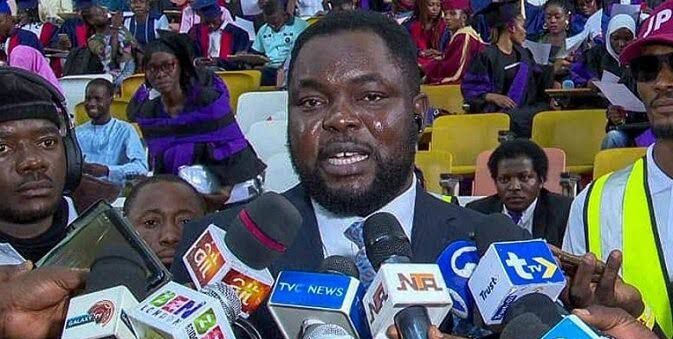Prof. Chris Imumolen, the National Chairman of the Accord Party, recently shared insights about his leadership role and the plight of Nigerians amidst current national issues in a conversation with Daniel Ayantooye. After serving as the Accord Party’s presidential candidate in the 2023 elections, Imumolen emphasized the necessity for the party to become more structured and effective. With a leadership void after 16 years of prior chairmanship, a caretaker committee was established to organize a convention and rejuvenate the party’s focus. However, their efforts were complicated by internal disputes that led to legal action to properly recognize Imumolen as the new chairman following conflicting claims about the party’s leadership. His determination to reorient the political dynamics within the Accord Party—to distance it from corruptions and promote more transparent behaviors—was a key part of their electoral strategy.
Following his court victory that affirmed his chairmanship, Imumolen informed that they were in discussions with the Independent National Electoral Commission (INEC) regarding formal recognition. He expressed confidence that adherence to court orders is vital in upholding the law. He stressed that his focus is not solely on titles but on revitalizing the party. Imumolen has sought to correct what he perceived as a lack of commitment among previous party leaders, who he accused of prioritizing personal gain over collective progress. To bolster unity, he convened a stakeholders’ meeting, actively encouraging reintegration of former party members expelled for challenging the status quo. Imumolen highlighted the need for political parties to engage in nation-building beyond election periods, demonstrating a commitment to community assistance as pivotal for responsible political engagement.
Addressing concerns of Nigeria’s social and economic challenges, Imumolen expressed that the immediate focus is on alleviating the suffering of citizens rather than aspirations for future elections. He urged a collective effort to confront pressing issues such as inflation, unemployment, and socio-economic instability that afflict Nigerians daily. Emphasizing the need for political parties to serve as voices for the populace, he advocates for proactive measures that address systemic failures rather than merely engaging in political rhetoric. His time as a candidate shown him the insufficiency of merely critiquing governments without offering tangible solutions to prevalent hardships.
Imumolen also reflected on the impact of media coverage on electoral outcomes, lamenting how it favors certain parties over others and often underscores the inherent biases that marginalize smaller parties like Accord. He believes this media influence exaggerated the challenges faced by his party in the 2023 elections, diverting public attention and limiting broader political competition. Moreover, he posited that the rise of the Labour Party, particularly under Peter Obi’s candidacy, revealed the importance of grassroots movements that resonate with the public’s desire for change, rather than just media-savvy campaigns.
On a deeper level, Imumolen summarized key lessons learned from the elections, particularly that money politics severely undermined the democratic process within Nigeria. He argued for extensive voter education and a cultural shift among voters to prioritize integrity and long-term vision over immediate financial incentives. Through systemic change, he envisions a country where voters embrace their agency and resist political bribery, ultimately fostering a government responsive to citizens’ needs. Addressing the deep-seated corruption and inefficiencies embedded in the nation, he calls for a collective reevaluation of societal values and behavior to reshape the political landscape.
In discussing broader political reforms, including the notion of a one-term, six-year presidency, Imumolen expressed skepticism, underscoring that merely altering term lengths would not rectify deeper issues in governance. He posited that the quality of leadership is paramount; merely reshaping structures without addressing the competency of leaders does little to solve underlying challenges. Furthermore, he criticized current administration policies as disjointed and disconnected from citizens’ realities, emphasizing the need for a leadership that is well-versed in the socioeconomic fabric of the nation. Ultimately, he encapsulated his mission as one aimed at fostering honest, transparent politics that prioritize public service over personal gain, encouraging emergent political actors to genuinely commit to the lives of the people.














